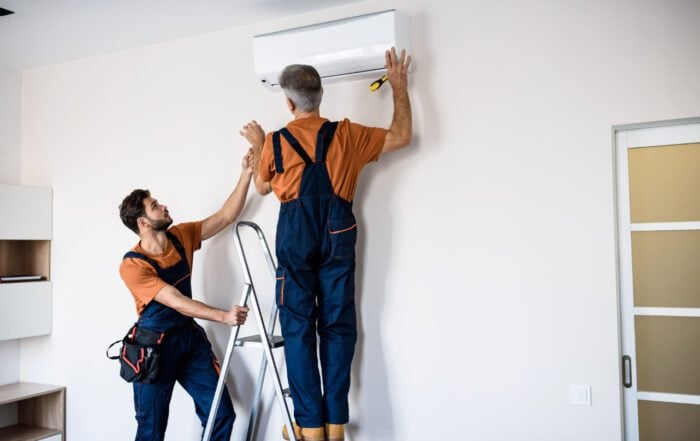Are you tired of constantly dealing with the annoyance of clogged drains in your home? It can be incredibly frustrating to have a slow, draining sink or shower, disrupting your daily routine. But before you reach for that plunger or consider using chemical drain cleaners, take a moment to pause and reconsider.
Attempting to clear your drains might seem like a quick fix, but it can be quite dangerous and potentially cause more harm than good. We will delve into the reasons why it’s best to leave drain cleaning to the professionals, explore the risks associated with DIY methods, and provide valuable insights on how to prevent clogs from occurring in the first place. So, sit back, relax, and dive into the world of drain maintenance together!
Dangers of Attempting to Drain Cleaning Yourself
Drain cleaning may appear deceptively easy, but it is essential to understand the potential dangers involved before attempting it yourself. While it may be tempting to take matters into your own hands, it is crucial to recognize the risks and consider seeking professional help if you lack proper training in plumbing.
One of the primary hazards of clearing drains without proper knowledge is the use of chemical drain cleaners. While effective in removing clogs, these products can pose significant health risks to both humans and pets. Here are some ways this can happen:
- Chemical Fumes: Drain cleaners often contain harsh chemicals like sodium hydroxide (lye) or sulfuric acid. When these chemicals come into contact with water, they produce fumes that can be harmful if inhaled. Breathing in these fumes can irritate the respiratory tract, leading to symptoms like coughing, wheezing, and difficulty breathing.
- Aerosolized Particles: Spraying or pouring drain cleaners can create a fine mist or droplets in the air. These tiny particles can be inhaled, potentially causing irritation and damage to the respiratory system.
- Allergies and Sensitivities: Some individuals may be particularly sensitive or allergic to the chemicals in drain cleaners. Even low levels of exposure can trigger allergic reactions, which may include respiratory symptoms like coughing, sneezing, and congestion.
- Poor Ventilation: Inadequate ventilation in enclosed spaces can exacerbate the effects of using drain cleaners. Without proper airflow to disperse the fumes, they can accumulate and become more concentrated in the air, increasing the risk of respiratory irritation.
- Accidental Mixing: In some cases, individuals may mistakenly mix different cleaning products, not realizing that certain combinations can create dangerous chemical reactions. This can release toxic gasses, which can cause severe respiratory issues.
- Pre-existing Conditions: People with pre-existing respiratory conditions, such as asthma or chronic obstructive pulmonary disease (COPD), may be more vulnerable to the respiratory effects of drain cleaners. The irritants in these products can exacerbate their existing respiratory symptoms.
Environmental Consequences of DIY Drain Cleaning
Drain cleaners often contain a variety of toxic substances that, when washed down the drain, can pose significant risks to the environment and water sources. Here are some of the key toxic components commonly found in drain cleaners:
Sodium Hydroxide (Lye)
This is a highly caustic and alkaline substance commonly found in drain cleaners. When it comes into contact with water, it generates heat and can cause severe burns on contact with skin or eyes. When released into the environment, sodium hydroxide can disrupt the pH levels of water bodies, potentially harming aquatic life.
Sulfuric Acid
Another powerful acid often found in drain cleaners, sulfuric acid can cause severe burns upon contact. When flushed down drains, it can lead to a drop in pH levels in water bodies, posing a threat to aquatic ecosystems and the organisms that inhabit them.
Bleach (Sodium Hypochlorite)
Some drain cleaners contain bleach, a potent disinfectant. While effective at killing bacteria, fungi, and viruses, bleach can also harm aquatic life and disrupt the delicate balance of ecosystems when released into water bodies.
Solvents and Surfactants
Drain cleaners may contain various solvents and surfactants to help dissolve and emulsify organic matter. These chemicals can persist in the environment and contribute to water pollution, potentially harming aquatic organisms and disrupting the food chain.
Heavy Metals
Some drain cleaners may contain traces of heavy metals, such as lead, mercury, or cadmium, as impurities from manufacturing processes. These metals are highly toxic to humans and wildlife and can accumulate in the environment, posing long-term risks.
Volatile Organic Compounds (VOCs)
Certain drain cleaners may contain VOCs, which can contribute to air pollution when released into the atmosphere. VOCs can react with other pollutants to form smog and contribute to human respiratory issues.
Understand Why it’s Best to Leave it to Professionals
Professional plumbers have the expertise and tools to safely and effectively clear drains without causing any harm to your plumbing system. They also have the ability to diagnose any underlying issues that may be causing frequent clogs, such as tree roots or broken pipes. By hiring a professional, you can save time and money in the long run while ensuring that your plumbing is in good condition.
Unmasking the Dangers for DIY Drain Cleaning
Plumbing systems can be complex and dangerous to those who need to be more experienced. Trying to fix a clog on your own can involve working with sharp tools, chemicals, and standing water that may contain harmful bacteria. Instead of risking injury or illness, it’s better to leave plumbing work to the professionals.
Explore the Risks of DIY Drain Clearing Methods
Chemical drain cleaners are a common DIY method for clearing clogs, but they can be harmful to the environment and your plumbing system. These cleaners weaken pipes over time and can cause major leaks or blockages. Baking soda and vinegar is another popular method, but it may only be effective for some drain types and can cause damage if not done correctly.
Embrace Professional Tools and Products!
Professional plumbers have access to tools and products that are specifically designed for clearing drains safely and effectively. They can also provide recommendations for preventative measures, such as water softening systems or drain screens, to help reduce the likelihood of future clogs.
Clearing your own drains may seem like a simple and cost-effective solution, but it can be dangerous and may cause more harm than good. By hiring a professional plumber, you can ensure that your plumbing is in good condition and prevent future clogs from happening. Remember always to prioritize safety and leave plumbing work to the experts.
The Best Plumbers in Ohio!
Don’t let stubborn clogs disrupt the comfort of your home. At Stack, Heating, Cooling, Plumbing & Electric, we’re dedicated to ensuring your plumbing system runs smoothly. Our team in Avon, OH, and the greater Cleveland area has the expertise and tools to tackle drain issues safely and efficiently. Let us handle your plumbing needs so you can focus on enjoying your home. Call us today at (440) 937-9134 or visit our website to schedule. Your satisfaction is our priority!
Have Any Questions?
If this is an emergency please call 440-937-9134.
Otherwise, please feel free to call us or submit this form to schedule an appointment for service or request an estimate. We will contact you shortly!





